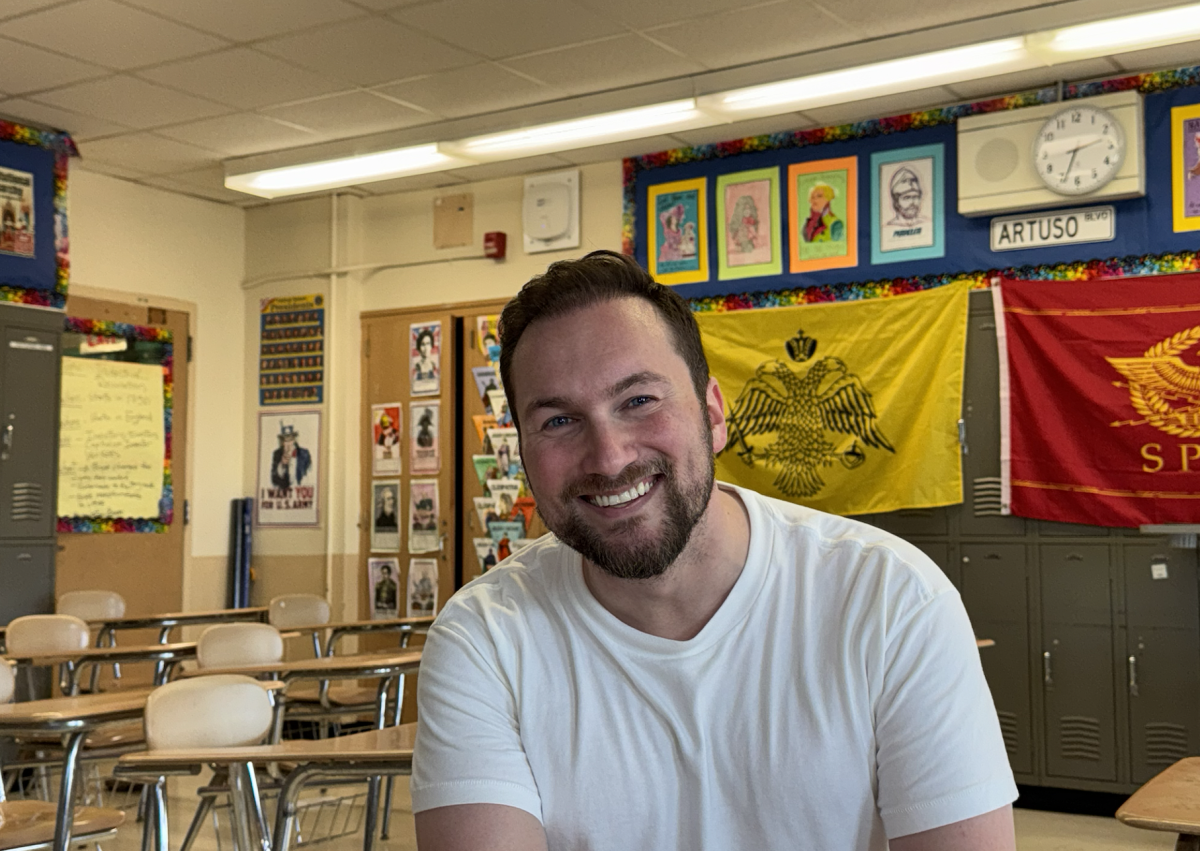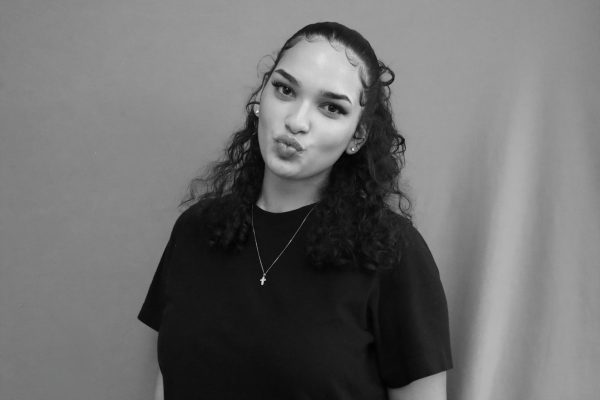Social studies and history is one of the core courses that students are required to take at Cardozo. In 9th and 10th grade, students are immersed in the world, learning the history of the world. While some students find this content mundane, some teachers are able to bring excitement into the classroom, making the class exciting and fun. One of those teachers is Global History educator, Mr. Artuso.
Mr. Artuso has been working in the Department of Education for over a decade. Previously attending Hofstra University, he majored in international relations and languages. “I wanted to be a translator,” he said. “I wanted to work for a government organization like the UN or even law enforcement like the CIA, FBI.”
Right before he graduated, he realized hated this field and didn’t know what to do next. “Hofstra was like since I took all these history classes and the history of all these languages, just finished with a degree in history so I did,” Mr. Artuso recalled.
What really led Mr. Artuso to being a social studies teacher was simply the fact he has always been well-read on current events in geopolitics. “I always talked about these things because these are the problems I would have been working on if I actually got to work at the UN,” he said. He also enjoys hearing students’ inputs on current events and issues going on across the world.
Before teaching, Mr. Artuso worked for tech. company Apple, but he didn’t see himself working there long-term. “I left and got my masters in teaching and because I have my history degree and my masters degree,” he explained. He then became a teacher and began his teaching career on Long Island. However, realizing it wasn’t his cup of tea, he ended up in the DOE.
When Mr. Artuso first started working for the DOE, he taught at the High School of Law Enforcement in Jamaica, Queens. However, when the school didn’t have enough money in their budget to keep him, he got excessed. Out of sheer luck, his principal helped him get into Cardozo. “My principal made a phone call and had me come over to Cardozo the same day,” he said. “I was very lucky I got the job so it was kind of like a series of events that led me here.”
Looking back, the history teacher shared that he has “no regrets” about his journey to becoming a teacher; especially because he found a community here at Cardozo. “I know a lot of people have a lot of negative things to say about Cardozo, but it really is a paradise compared to whatever else is out there,” Mr. Artuso said.
One thing that he loves about this community is that many other teachers have come from different career paths before coming to Cardozo, just like him. “The wealth of knowledge in this building is unlike anywhere else,” he said. “You have so many perspectives here.”
As a teacher, Mr. Artuso believes that while academics are important, they are not the most important. “Grades are the least important thing to me, they’re just numbers,” he explained. “I think people are so much more than a number.” Mr. Artuso tries to zoom into the humanity and the individuality of everyone in his classes. He incorporates all different learning styles when he teaches, making an environment where everyone can genuinely take something out of it. Talking to students is a must for him, really getting to know each student and know everyone as individuals.
Being a history teacher, Mr. Artuso loves thinking about things of the past and monumental events. If he could live during any historical time period, he explained it would be during the 1780s. “I would probably want to be in the room when they were designing our constitution because I would love to know the opinions that were stated behind closed doors,” he said.
He explained that he wonders why enslaved persons and women were excluded from being free if they were building a new country. There is evidence of women wanting to be included, yet it took women 100-200 years from then to become free. Mr. Artuso would have wanted to be there to seek the answer on why they did what they did things the way that they did.
Above all, his favorite unit to teach about is the Cold War. “A lot of the problems for the wars that are going on right now are because of decisions that were made during the Cold War and the years right after World War II, especially in regards to Ukraine and history going back to 1991,” he said. “I find it fascinating that the United States took on this role of protecting this country and here we are like why are we here at war with Russia without using those words.”
“I think those types of things fascinate me,” Mr. Artuso reflected.
Along with historical events and material, the best part of his job is the conversations, even though they can be tiring. “Teaching, it’s 150 different conversations everyday, 30 different conversations an hour, and it’s a lot,” Mr. Artuso said. “I think if you ask any teacher they will tell you when they get home they feel exhausted, even if they slept well, they are dead they would just stare at a wall for three hours.”
“Sometimes, I would watch the TV for two hours before I realized the TV isn’t even on,” he joked. But, he said that the conversations and even the stress is a good thing because teaching gives you a “really fulfilling life.”


